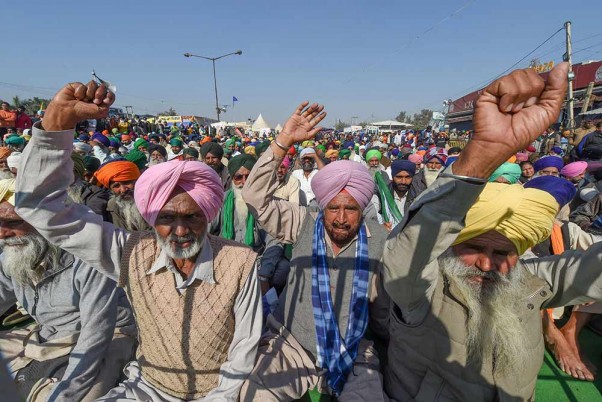Jhajjar (Haryana): A lawyer from Punjab allegedly died by suicide by consuming poison Sunday a few kilometres from the site of a farmers’ protest at Tikri border.
Amarjit Singh from Jalalabad in Punjab’s Fazilka district was taken to the Post Graduate Institute of Medical Sciences (PGIMS) in Rohtak where doctors declared him dead on arrival, police said.
In a purported suicide note, Singh said he was sacrificing his life in support of the farmers’ agitation against the Centre’s new farm laws so that the government is compelled to listen to the voice of the people.
Singh wrote that the common people like farmers and labourers are feeling “defrauded” due to the three “black” agriculture laws and “the worst life is inevitable”.
The police said they are verifying the authenticity of the suicide note, dated December 18.
“We have informed the relatives of the deceased and once they reach here their statements will be recorded and further proceedings will be conducted,” a police officer from Haryana’s Jhajjar district said, adding that they were informed about the suicide by the hospital authorities.
Earlier, at least two suicides have been linked to the farmers’ stir, underway at various border points of Delhi for over a month now.
A Sikh preacher, Sant Ram Singh, allegedly committing suicide near the Singhu border protest site earlier this month claiming that he was “unable to bear the pain of the farmers”.
A 22-year-old farmer had allegedly committed suicide in Punjab’s Bathinda after returning from a protest site near the Delhi border.
A week ago, a 65-year-old farmer from Punjab had attempted suicide by consuming some poisonous substance near the Singhu border.
Thousands of farmers from Punjab, Haryana, Uttar Pradesh and some other states have been protesting at various border points of Delhi against the Farmers (Empowerment and Protection) Agreement of Price Assurance and Farm Services Act, Farmers Produce Trade and Commerce (Promotion and Facilitation) Act, and the Essential Commodities (Amendment) Act.
Enacted in September, the three farm laws have been projected by the central government as major reforms in the agriculture sector that will remove the middlemen and allow farmers to sell anywhere in the country.
However, the protesting farmers have expressed apprehension that the new laws would pave the way for eliminating the safety cushion of Minimum Support Price and do away with the mandi system, leaving them at the mercy of big corporates.
PTI

